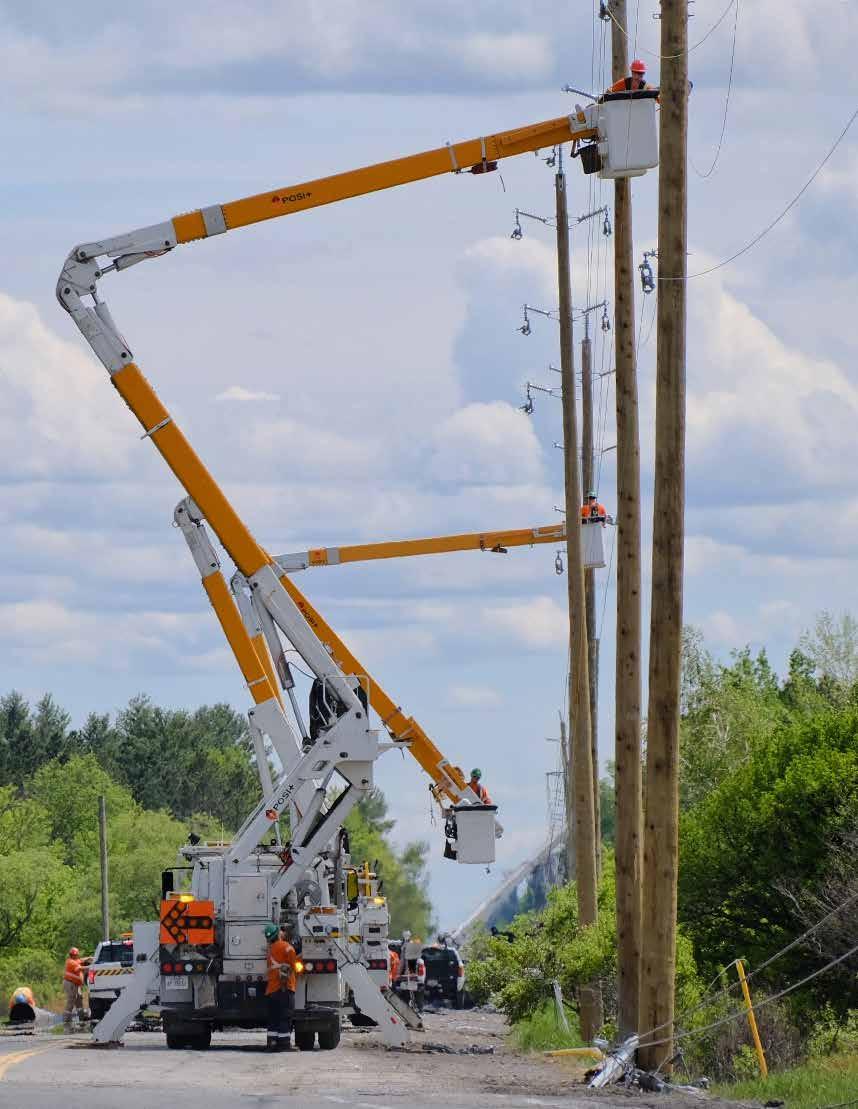
1 minute read
Electricity Canada member projects
Small Modular Reactors (SMRs) are all the buzz right now – and deservingly so. SMRs are critical to getting Canada to a net-zero economy by 2050 and have a strong potential to replace fossil fuel-based generation. Each 300 MWe SMR could displace one megaton of CO 2 emissions, when compared to natural gas, or two megatons when compared to coal.
SMRs will be particularly useful for powering remote communities. As it will provide a reliable, low-carbon source of electricity for communities that often rely on diesel generators and where other clean power alternatives like wind, solar, and hydro, are more variable and more difficult to implement due to the remote location and harsh climate conditions.
With a preliminary target to have the first SMR operating as early as 2028, the project is expected to cut 750,000 tonnes of greenhouse gas emissions every year once it comes online, with approximately 300,000 homes being powered by a 300 MWe SMR.
In late 2022, Ontario Power Generation (OPG) received a nearly $1 billion loan from the Canada Infrastructure Bank to begin building Canada’s first small-scale nuclear power reactor at the utility’s Darlington site.
Electrifying vehicle fleets have become one of the most discussed forms of environmental upgrades for corporations within Canada and abroad, not only to help reduce their carbon footprint and reduce energy consumption, but also to reduce total cost of ownership and operations. ENMAX is the first utility in Canada to pilot a medium-duty electric fleet. Their plan is to electrify 35 percent of their fleet by 2025 and 100 percent by 2030 (approx. 20,000 tons of CO 2 equivalent). This project, the first of its kind, is supported by Emissions Reductions Alberta, and could save an estimated 4,300 litres of diesel per vehicle each year. The first two medium-duty fleet vehicles hit the streets of Calgary in April 2022.
The problem is that much of Canada’s electricity regulations were devised in the middle of the 20th century, when terms like “climate change” and “net zero” didn’t exist.







